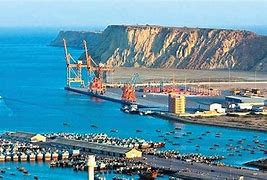Federal Minister for Planning and Development, Prof Ahsan Iqbal meets Chinese experts to explore avenues of strengthening bilateral relations.
Federal Minister for Planning, Professor Ahsan Iqbal, met with a delegation of Chinese experts led by Ambassador Wang Fukong from the Chinese Foreign Ministry. The delegation, which includes representatives from ten Chinese ministries, is visiting Pakistan to strengthen economic ties and explore solutions to Pakistan’s economic challenges through the second phase of the China-Pakistan Economic Corridor (CPEC).
In his address, Professor Iqbal discussed key areas for improvement and sought guidance from the Chinese experts, who have made significant advancements in these fields. He emphasized the need for Pakistan to adopt an export-led growth strategy to mitigate balance of payments crises, noting that increased imports without corresponding foreign exchange reserves exacerbate these issues. By learning from China’s success in boosting exports, Pakistan aims to diversify its export base and enhance its manufacturing capabilities to better compete in global markets.
Professor Iqbal highlighted that only 12 percent of Pakistan’s economy is manufacturing-based and stressed the need to expand this sector. He called for collaboration with Chinese experts to develop industrial zones, improve manufacturing technologies, and train the workforce. China’s rapid manufacturing growth can serve as a model for Pakistan to achieve sustainable economic development.
Addressing the agricultural sector, Professor Iqbal pointed out that despite being a major crop producer, Pakistan’s production levels are relatively low. He advocated for adopting modern farming techniques, advanced irrigation, and improved crop management practices from China to boost agricultural productivity.
In the dairy sector, Professor Iqbal noted that Pakistan is the third-largest milk producer but has low average milk production per animal compared to global standards. He sought insights from Chinese experts on enhancing dairy farming practices, improving animal health, and increasing production efficiency to elevate Pakistan’s dairy industry.
Professor Iqbal also discussed the challenge of attracting foreign direct investment (FDI), highlighting the significant disparity between Pakistan’s FDI of 2 million dollars and Vietnam’s 38 million dollars. He stressed the need to create a more favorable investment climate, streamline regulations, and offer incentives, drawing lessons from China’s successful FDI strategies.
Emphasizing the importance of transitioning from an import-based to an export-based growth model, Professor Iqbal noted that the current trade imbalance hampers economic stability. Learning from China’s trade policies and export strategies could help Pakistan improve its trade balance and achieve sustainable growth.
Finally, Professor Iqbal addressed the impact of the International Monetary Fund (IMF) program, noting that the removal of subsidies has led to inflation. He attributed some of the economic difficulties to past mismanagement, which caused significant depreciation of the Pakistani rupee. Seeking advice from Chinese experts on managing inflation and stabilizing the currency could help Pakistan address these issues more effectively.
The visit of the Chinese delegation underscores the importance of bilateral cooperation, and Professor Iqbal expressed optimism that working with Chinese experts will lead to practical solutions for Pakistan’s economic development and prosperity.
Related Posts
PM Shehbaz Sharif Reaffirms Pakistan-China ‘Eternal Friendship’

















